The following are candidates’ responses to questions 1 and 2 from the Seattle DSA 2017 Candidate Survey. For more on our city council and mayoral candidate questionnaire, see here. Responses are presented as they were sent to Seattle DSA and have not been edited in any way.
Question 1: Why did you decide to run for office?
Mayor
Mike McGinn, Mayor
For the past three years, we’ve seen Seattle change in ways that I think we all should be concerned about.

Mayoral candidate Mike McGinn. McGinn previously served as Mayor of Seattle from 2010-2014. Photo from McGinn for Mayor.
Rising housing prices combined with regressive taxes are making our city inhospitable to lower and middle-income individuals and families.
If you wanted to design a system to drive out working and middle class residents, this is what it would look like. Growth that benefits the top, with the impacts paid for by those in the middle and the bottom. I do not want Seattle to turn into San Francisco, an enclave for the wealthy. We need to be a welcoming city. To address this, I would focus on equity in our budget, policies, and taxes. To the extent we need new taxes, I support an income tax, or taxes on the big corporations that are enjoying financial success in our city.
My announcement speech detailing why I entered the race can be found at mcginnformayor.com
Nikkita Oliver, Mayor
The decision to run for mayor is not one I arrived at by myself. The Peoples Party is the driving force behind the movement to seek transformational change in Seattle. Through a community process, potential candidates were considered, vetted, and voted upon. It was an honor to be a part of this process and an even greater honor to be chosen to serve and stand with the Peoples Party to become the next mayor of Seattle.
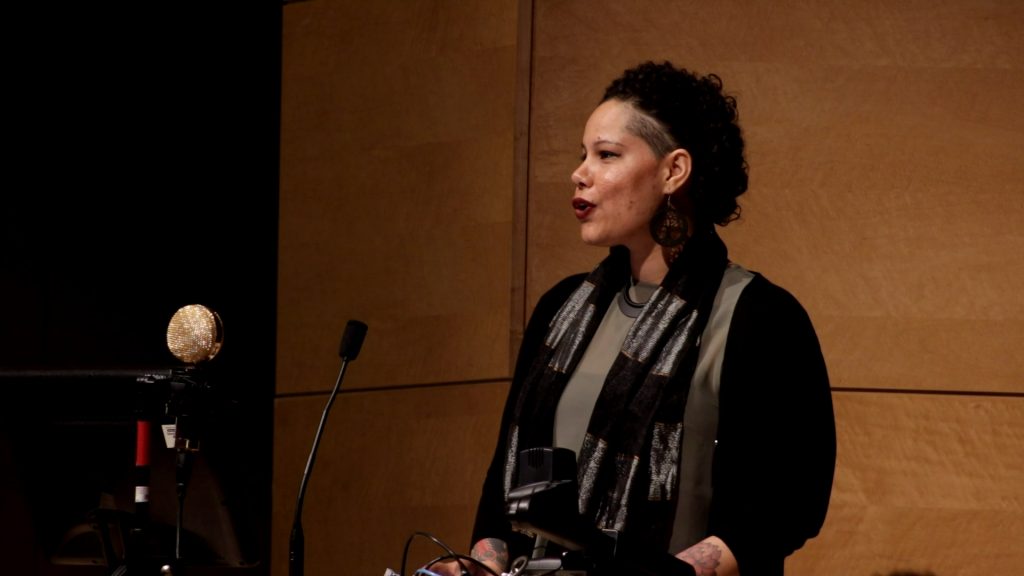
Mayoral candidate Nikkita Oliver. Photo by David Peters/Seattle DSA
My decision to run for mayor was not exactly mine. I can proudly say that my decision to run for mayor is the community’s decision to run for mayor. I am running at the behest of the aunties and elders of my community and I do not take this responsibility lightly.
The cash poor, working class, underserved people of Seattle have been ignored and relegated to the fringes for far too long–especially by our corporate-inclined Mayor and administration. The people of Seattle deserve better. The people of Seattle are tired of being sold to the highest corporate bidder and we understand that four more years of Ed Murray will cause irreversible harm to those the most vulnerable of Seattle; which includes our artists and those whose cultural capital have made Seattle an Emerald gem.
Our mayor should be someone who listens to and uplifts the voices of marginalized
communities. It’s these voices that know what is most needed to make Seattle work for us all,
not ust the few elites.
For these reasons, we are not just going to continue to take to the streets and demand equity
and justice for our communities of color and cash poor folks of this city, but we will bring the
policies forward to achieve this equity directly from the office of the mayor.
Jason Roberts, Mayor

Mayoral candidate Jason Roberts. Photo from Jason Roberts for Mayor.
In 2016 my brother died of a heroin overdose, he was 23 years old. My mother passed in early 2017 after a lifetime of opiate and alcohol addiction. I later learned that she had also contracted HIV, likely from her use of heroin. The streets of Seattle are filled with such stories, yet little is being done to help.
I want to become Mayor so that I can prevent as many families from suffering these kinds of tragedies as possible. If elected, drug reform will be one of my highest priorities.
Casey Carlisle, Mayor
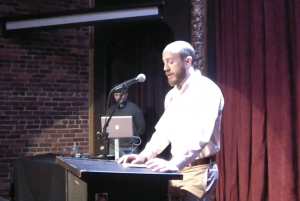
Mayoral candidate Casey Carlisle. Screengrab from Casey Carlisle speaks at “Liberty Rocks Seattle”.
I am concerned about the direction our city is taking; I am not satisfied with simply complaining about it, so I’d rather try doing something about it.
Keith Whiteman, Mayor
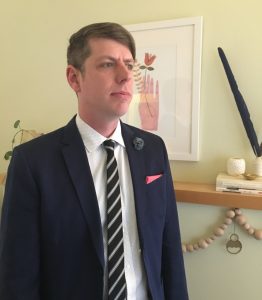
Mayoral candidate Keith Whiteman. Photo from Keith Whiteman for Mayor.
Always try. Always have an open mind. Lead firmly, slowly and justly.
Harley Lever, Mayor
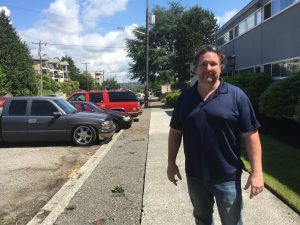
Mayoral candidate Harley Lever, from an interview with KNKX.
Lever has not returned answers to the questionnaire.
Mary Juanita Martin, Mayor
Martin did not respond to our emails.
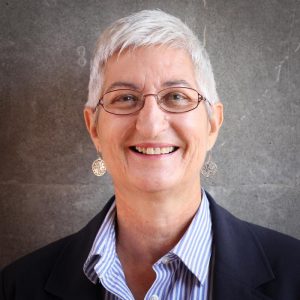
Mary Juanita Martin, from KUOW.
Martin wishes to inject a working people’s voice into local politics, per a debate hosted by the 46th District Democrats.
Cary Moon, Mayor
Updated May 19 with candidate responses.
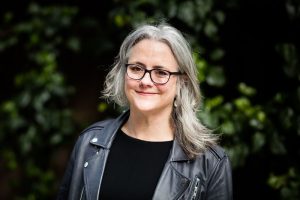
Mayoral Candidate Cary Moon.
I’m running for mayor because I feel an immense duty and responsibility to ensure Seattle works for everyone, not just the wealthy few. I see Seattle becoming a city of haves and have nots, of winners and losers, and it’s horrifying. We need a different kind of leadership to tackle this challenge. As mayor, I will listen and take honest stock of the challenges facing our city, and use my expertise as an urban planner, engineer and civic leader to develop strategies that strike Seattle’s problems at their root cause, not just address the symptoms. I intend to work with other experts and community leaders to develop a shared vision and principles, create an action plan based on key priorities, and hold myself and my administration accountable by reporting on progress to the people of Seattle. We all deserve to help shape the future of our city, and work constructively together toward shared goals.
I’ve been working on solutions to our urban challenges for the past 20 years, and have a strong policy framework and problem-solving skill set. Before working in advocacy, I worked as an engineer in manufacturing companies and helped run my family’s small business that was partly owned by employees and awarded the honor of being the best place to work in Michigan. I have broad skills across private industry, the public sector, and activism—from those different experiences, I’ve built a set of leadership skills that I think are the right skills for Seattle.
As Mayor of Seattle my attention would be focused on solutions that build well-being for everyone, especially by tackling housing affordability, expanding access to transit, pursuing racial equity in who is at the table and how we allocate resources, and structuring our local economy so we all have access to economic security, opportunity, and entrepreneurship.
The main things that separate me from my opponents are:
- Vision: For a city like Seattle that’s going through such a rapid transformation with so many forces changing our city, we need a strong commitment to a positive, inclusive vision for the future. We don’t have that now, and the lack of direction and vision is deeply unsettling for most of us. We need to define what we are aiming to be, understand the path there, and see how we can work together.
- Leadership: We need collaborative leadership that listens, that builds solutions
together, that builds commitment together. We don’t have that now. Some of the transformative solutions we need to put in place are going to be really tough. Tackling the root causes of our housing affordability crisis, and putting in the right disincentives to stop the speculation that is contributing to price escalation, is going to take analytical skills and political courage. Guiding our economic growth
so we build prosperity for everyone, not just the wealthy and powerful, is going to take courage, creativity and the ability to stand up to corporate special interests. My leadership style is to listen, define a common vision, invite everyone’s best ideas, and find solutions together.
- A progressive economic vision: More fundamentally, we need to establish a
new vision of a progressive economy that builds prosperity for everyone, establish a platform of concrete solutions, and build a shared commitment to get there. For too long our country, our state, and our city have been swept up in a trickle down neoliberal mindset, with massive profits for corporations, low taxes for the wealthy few, and austerity for the rest of us. The result of this is everywhere around us, with power and wealth concentrated in too few hands. This extreme inequality is not who we are in Seattle, and we need to shake off this ideology and replace it with something that rings true to our values. We have the power in our city — and the responsibility — to replace neoliberalism with a new progressive vision, and reclaim the authority to guide our booming economy so that it puts people, not profits, first. Seattle can lead the transition toward an inclusive economy with equitable access, and become a progressive beacon in these dark times.ause, not just address the symptoms.”
Alex Tsimerman, Mayor
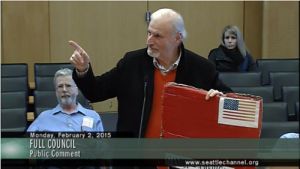
Mayoral candidate Alex Tsimerman at a city council public comment period.
Indeterminate. Tsimerman did not respond to our emails.
David Ishii, Mayor
Ishii’s campaign email bounced our email back.
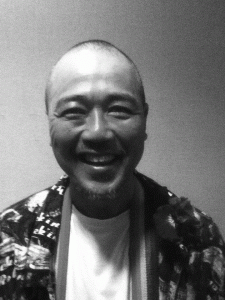
Mayoral candidate David Ishii from a previous year’s voter guide.
Ishii has said he wants to fight corruption.
Bob Hasegawa, Mayor
Hasegawa did not respond to our emails. He told Crosscut he seeks to, “rebuild political power for the people, which was kicked off by the Bernie campaign last year.”
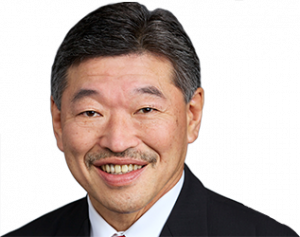
Sen. Bob Hasegawa
Jenny Durkan, Mayor
Durkan did not respond to our emails.
She said she’s “running for mayor because I believe we can bring light to the shadows… We can build a future that’s even more just and equitable.”
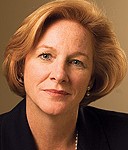
Mayoral candidate Jenny Durkan.
Jessyn Farrell, Mayor
Farrell did not respond to our emails. She’s stated she’s running “because of changing times, the Trump administration and “huge issues” facing Seattle.”
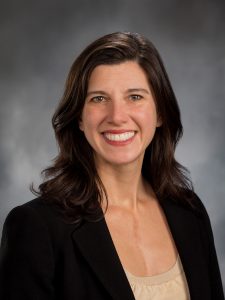
Mayoral candidate Rep. Jessyn Farrell.
Michael Harris, Mayor
Harris did not respond to our emails. He said his primary issue of interest is “homelessness.”
City Council
Jon Grant, Pos. 8
I am running for Seattle City Council as a Democratic Socialist because in the Donald Trump era it will be up to local movements to create models of change for the rest of the country to follow. We have an opportunity to win a progressive majority on the Seattle City Council, and I have over ten years of experience building power in our community through grassroots organizing to win progressive policy.
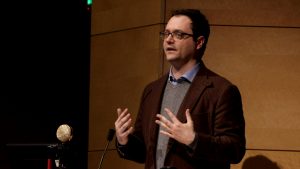
City Council Pos. 8. candidate Jon Grant. Photo by David Peters/Seattle DSA
During my time as the Executive Director of the Tenants Union the importance of solidarity and movement building has been proven time and again the key to lasting change; and as an elected leader I would use my position to advance that cause. It is my goal to demonstrate that a Democratic Socialist platform can win a citywide race and create a new model for change in Seattle.
I believe that the city has a key role to redress the impacts of growing income inequality. I am the only candidate in the Position 8 race to refuse contributions from CEOs, corporations, and developers and instead primarily fund my campaign with small grassroots donations and Democracy Vouchers. Our average donation is just $19, and almost 95% of our donations are sourced from publicly financed Democracy Vouchers, where we have already raised almost $100,000. How we win is important. It shows the public who we are accountable to, and only accepting donations from community members rather than CEOs is how we start to break the grip big money has on advancing a bold progressive agenda.
Sheley Secrest, Pos. 8

Sheley Secrest is running for City Council Pos. 8. Photo from Sheley Secrest for Seattle City Council Position 8.
I am a long-time activist whose experience includes enacting police reform in Seattle, working on the McCleary lawsuit, raising the minimum wage to $15 an hour in Seattle, ensuring fairness in hiring for people of color, restoring voting rights for convicted felons who have served their time, and creating affordable housing. I feel that this is the time for me to move “inside” to officially represent the people of Seattle as a fresh, progressive voice on the City Council.
If elected, I would be only the second African-American woman elected to the City Council in the history of Seattle. I would use my experience to continue to push for – and enact – gains for people who are often left out of the decision-making process. I also hope to serve, by my example, as an inspiration for those who feel that they cannot be heard.
Charlene Strong, Pos. 8
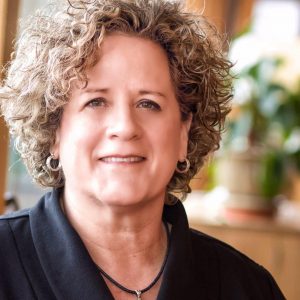
City Council Pos. 8 candidate Charlene Strong. Photo from Elect Charlene Strong.
As a progressive, the election of Donald Trump as President was a motivation and a revelation. I am a long time Seattle resident and it became abundantly clear to me that we do live in a bubble of progressiveness. I believe that as a city and state we need to be sure that we are including all voices, especially constituents that feel unheard, disconnected, or underrepresented. It is when we listen to those we may not agree with that we learn best how to legislate and represent.
Ryan Asbert, Pos. 8
(Preface: It is important to preface my answers by giving a little more information on my platform. I am building a web application which will allow the citizens of Seattle to vote on, discuss, and participate in all upcoming legislation, and if elected I would essentially act as a proxy of the public through this new software platform.

City Council Pos. 8 candidate Ryan Asbert. Photo from Ryan Absert’s YouTube campaign announcement.
That said, while I intend to turn my seat into a more administrative than authoritative role, a “proxy” in this platform would still maintain somewhat of a veto authority over the public. While I can and am willing to vow that 99% of the time I will be deferring my judgement to the public vote and only exercise said veto authority under the rarest of circumstances, it is still undeniably important for the public to know my stance on these issues.)
I feel that our system is broken. There is a severe lack of integrity in our government process, and while many may be quick to blame our elected officials and the organizations behind them for this situation, I think the problem is far more systemic, and what we really need to do is take a different approach to the process altogether.
That different approach is the basis of my platform, which we call The x Party. I will be putting every piece of legislation from my docket on the web for every citizen of Seattle to not only vote on, but to participate in the discussion of, and even help shape the direction bills and legislation take before reaching a council vote. It’s my hope that this type of organic process will allow for a more effective and agile government that works for the true public interest.
Sara Nelson, Pos. 8
I am running because I’ve lived in Seattle since 1990, I own a small business, and I’m raising my family here so I have a stake in this city’s future. I want to make sure this is a city that works for everyone and that means taking care of basic services, spending tax dollars wisely, and ensuring opportunity for all.

City Council Position 8 candidate Sara Nelson.
I also worked on City Council as a legislative aide from 2002 to 2013 with a two-year hiatus to help launch my family business (Fremont Brewing) where I helped to write, advance, and promote environmental legislation at a time when Seattle was on the cutting edge of environmental and zero waste policy. I brought that experience to my family business, Fremont Brewing, and it informs everything we do. We are a nationally recognized leader in sustainability and one of the top breweries in the nation when it comes to conservation. Fremont Brewing is proof that small business can be a force for good and I want to broaden the conversation in Seattle to embrace the positive contributions of the private sector.
I have a proven track record translating Seattle’s shared values into action — be that starting and growing a business or enacting public policy — and I will add the fresh perspective of small business to Council as it navigates the many challenges and opportunities facing Seattle today.
Hisam Goueli, Pos. 8
Goueli did not respond to our emails.
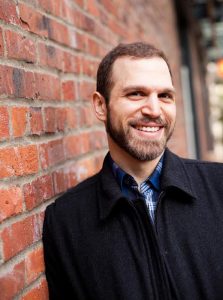
Position 8 candidate Hiram Goueli, from his Jet City Improv page.
The following is from his campaign website: “Goueli wants to provide each Seattle resident with a physical, medical and cultural home by providing city-wide health care coverage, affordable housing for all income levels and artistic outlets for communities while maintaining Seattle’s essence now and into its future.”
Mac McGregor, Pos. 8

Position 8 candidate Mac McGregor, from his website.
McGregor did not return answers to our questionnaire.
McGregor was inspired to run by President Trump’s victory and the Republican takeover of Congress. McGregor told Seattle Gay News, “even though there are so many things we do right in Seattle, and we’re a progressive city in so many ways, we can do better.”
Teresa Mosqueda, Pos. 8
Updated May 9 with candidate responses.

Position 8 candidate Teresa Mosqueda.
My background is in fighting for health care as a human right in public health, and working to lift up working families in the labor movement. I am running because I want to bring that commitment to protect the health of our community and fight for economic justice for every resident of Seattle. I have dedicated my career to making sure that no one is left out or and no one is left behind. From implementing health care for every child in this state, to fighting for worker’s rights and lifting-up the working class, and drafting and passing the state’s sick leave and min wage initiative – I’ve fought for working families and organized for change. We are proud of our progressive roots in Seattle, but far too many people are still being left, left behind and pushed out. I am committed to protecting the rights of every resident in our city, making sure workers can afford to live in the city where they work, and building a local economy that works for all, not just the wealthy few.
Rudy Pantoja, Pos. 8

Position 8 candidate Rudy Pantoja, from a GoFundMe page.
Pantoja refused the questionnaire, insisting instead on a personal interview. This was not a condition of our questionnaire.
He told Ballard News Tribune, “My plan is really just for a better quality of life, especially for the middle class. We are really being squeezed here in Seattle by the taxes that have been implemented on us over the years that are catching up with us.”
Ian Affleck-Asch, Pos.9
Updated on May 16 with candidate responses
I decided to run for office because of perceived political inaction on our City Council. There are a great many things amiss in our illustrious city: Homelessness; Litter; Vandalism; and Non-participation in politics and community events, to name a few. I believe that I would be a great benefit to the City Council because of my passion for peacefulness and my dedication to the success of humanity.
Lorena González, Pos. 9
González did not respond to our emails.
During her first campaign, in an interview first published in the South Seattle Emerald, she said, “I’m running because I think the City of Seattle is really going through a period of dynamic transformation and we can feel it as we walk through the city.

Position 9 incumbent Lorena González.
We see the changes. We see the cranes. We see the faces changing that are walking down the sidewalk. I’m really interested in making sure that as this city grows we still have African American and Latino faces on its streets. Also, I bring an experience and a focus that has never been represented on City Council. I know what it means to grow up poor. I know what it means to grow up in a home where English isn’t the first language spoken. I know what it means to grow up in a home where everybody’s got to work because everybody’s got to contribute to the household, to make sure you have something to eat at the end of the day. I think that’s an experience that people in this city are currently living right now and I think that’s an important perspective to bring to City Hall, which is a very powerful place in our city. I believe the upbringing I had will give me a perspective that truly reflects the values of this city and will bring in the voices and the struggles of the people who live here into the room, and at that table.”
David Preston, Pos. 9
Preston refused the questionnaire, insisting instead on a personal interview. This was not a condition of our questionnaire.
Marguerite Richard, Pos. 9
Indeterminate. Richard did not respond to our emails.
Eric Smiley, Pos. 9
Smiley refused to answer our questionnaire.
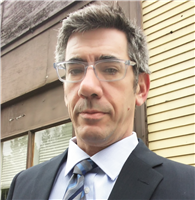
Position 9 candidate Eric Smiley, from his website.
The following is from his campaign website: “I am looking to make a positive impact on the way the city responds to the great growth we are experiencing. In our understanding of ourselves and of each other. The nature and significance of even small efforts working together is astounding. Even greater is an appreciation that there is not just one flower in the bouquet but there are infinite ways we can go.”
Pat Murakami, Pos. 9
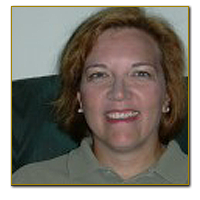
Position 9 candidate Pat Murakami.
Murakami has not yet returned answers.
Amanda Carter, Pos. 9

Position 9 candidate Amanda Carter from her Crowdpac page.
Carter did not respond to our emails. On a Crowdpac page, seeking funding for her campaign, she said, “It’s time that we as individuals, get back to community, and come together to take back our city and to become so sustainable on our own, that we no longer need fear the political whims of our Hollywood style federal governing.”
Question 2: Seattle city employees will soon have the right to 12 weeks of paid parental leave and four weeks of paid family leave, following an 8-0 city council decision. How will you extend these benefits to all workers in the city?
Mayor
Mike McGinn, Mayor
I support paid parental leave for all employees in Washington. I support Seattle moving ahead with paid parental leave. I would work closely with our City Council to move this forward.
Nikkita Oliver, Mayor
Position: Parental Leave and Family Leave are essential policies for an equitable society which promotes healthy families, equal opportunity, and gender justice. The United States is the only “developed” country that does not guarantee paid parental leave for new parents. The benefits of 12-weeks paid parental leave and family leave are enumerable.
In 2017, Seattle began making steps in the right direction to make paid parental leave and family leave priorities for our residents. As the City of Seattle becomes a model employer in regards to extending paid parental leave to 12weeks and instituting 4 weeks of paid family leave, it is essential we continue to strategize and plan to support equitable opportunities for ALL Seattle families not just those employed by the City of Seattle.
Action Agenda: It is pertinent that Seattle figure out how we can best institute and finance paid parental leave and family leave for all. There are numerous ways to finance paid parental leave and family leave for allsome of which are already being instituted in cities across the United States. It is up to Seattle to figure out which will be the best fit for us given our economic context, workforce, needs, and resources. Below are examples of ways we can finance paid parental leave and family leave for all:
- Financed By Payroll Deductions: There are cities and states within the United States who have instituted payroll deduction programs or pay-in/buy-in programs in order to develop citywide or statewide paid parental leave and family leave programs.
- New Jersey: Paid family leave is financed 100 percent by worker payroll deductions. Each worker contributes 0.09 percent of their taxable wage base. This cover the first $32k of wages earned. In 2015 no employee paed more than $29 (according the New New Jersey Department of Labor and Workforce). (We must acknowledge that New Jersey only provides up to 6 weeks paid leave. Eligible employees only only receive weekly benefit rates which are two-thirds of their average weekly wages, up to $595. Also, eligible employees have to file leave claims and it is unclear how accessible the process is for all New Jersey residents.)
- California: Eligible workers in California receive up to six weeks of leave. In 2013, wage replacement was at approximately 55 percent of the average weekly earnings, up to $1,067 per week and an average weekly benefit of $526 (according to the CA Employment Development Department). Each employee pays on average $30 per a year into a paid leave fund.
- Resource Pooling: By pooling resources with a shared model, businesses and employers of any size could offer their employees a pertinent benefit. This could be instituted at the individual business level or it could be instituted at the city level. At the individual business level the city can offer resources for setting up accounts and administrative support as well as seed money and incentives for business who pursue paid parental leave and family leave. If at the city level, it would likely look more like the above section. Furthermore, if Seattle were to finance paid parental and family leave through payroll deductions we could institute slide scale income limitations to ensure that families pay reasonable amounts based on income and expenses.
- Advocacy and Lobbying at the State Level: Paid parental and family leave will benefit us all. Seattle must invest resources in lobbying and advocating at the state level for changes and resources to finance leave for all families.
Jason Roberts, Mayor
I believe paid parental leave should be a right of all workers, not just those in Seattle. It may be difficult to do at the city level, as it would likely lean heavily on the employer. Many small businesses could struggle with absorbing the whole cost. Something akin to unemployment insurance makes a lot of sense, at the state or national level. A system where all workers and employers pay into the pool could mitigate costs. With the repeal of the ACA, parental leave is more crucial than ever. I am open to all ideas on the subject, but care must be taken for smaller businesses, so that they don’t pay disproportionately.
Casey Carlisle, Mayor
I won’t. Who am I to tell business leaders how to run their business? Yes, paid leave is desirable, but forcing businesses to provide that benefit has negative consequences and does more harm than good: reduced employment, reduced salaries, higher prices, reduced R&D, etc. Let businesses compete for employees without the middleman – i.e. the government – getting in the way. If certain businesses don’t provide desirable benefits, they’ll get the message when their employees flock to businesses that are more generous to their employees. Having the government telling business leaders what to do is not only pretentious, it’s harmful to society.
Keith Whiteman, Mayor
I believe paid parental leave should be paid by the people, insured and provided by the
government. I personally believe that the Federal government should insure that right for everyone. It’s hard for me to see a way, with the current tax income of Seattle and the threat of cuts from Olympia and Washington, DC, that we can provide paid parental leave for all the people of Seattle.
I am also cautious of the rise of employer provided parental leave. While great for those
employees covered and a generous benefit, this action of employer based coverage creates more of a gap in the class structure which is already visibly fissioned in Seattle and will dull the momentum of the need of this insurance if 25% of the wealthiest workers have the coverage through work.
One thing to look into as a stop gap before the federal government fulfills its obligation of coverage is the expansion of the ability to use unemployment benefits to cover parental leave. It is currently available to those with special circumstances. I believe that we can expand this to all parents. We pay into the unemployment insurance, if the government isn’t going to step up and respect the wishes of the people, we have the right to use our own money that we have invested in for our purposes as we see fit.
Harley Lever, Mayor
Lever’s position is indeterminate.
Mary Juanita Martin, Mayor
Martin’s position is indeterminate.
Cary Moon, Mayor
I support a paid family leave policy as an essential part of achieving gender equity in the workplace, and creating a society that is as supportive of women accessing their dreams as it is for men. Let’s recognize that we must figure out a way to pay for family leave in a way that doesn’t overburden small businesses. We have to get creative here; perhaps we could develop a program like unemployment insurance, where employers and employees across the city pay into a pool that can be accessed by new parents as needed. We need this, and it’s essential to figure out. When parents have what they need, families thrive, and communities thrive.
Alex Tsimerman, Mayor
Tsimerman wants 3 months’ “payment” to all parents per a statement on his campaign website.
David Ishii, Mayor
Ishii’s position is indeterminate.
Bob Hasegawa, Mayor
Hasegawa co-sponsored SB5032 which would provide up to 26 weeks of paid family leave.
Jenny Durkan, Mayor
Durkan’s position is indeterminate.
Jessyn Farrell, Mayor
Farrell’s position is indeterminate, though she sponsored a bill for protections for pregnant workers that became law.
Michael Harris, Mayor
Harris’ position is indeterminate.
City Council
Jon Grant, Pos. 8
My platform includes robust support for gender pay equity policies, including paid family leave. I support the city’s current proposal that is being considered to provide up to six months paid family leave to all workers in Seattle. The plan will provide 26 weeks of paid leave for workers to care for a new child or a family member with serious medical condition. The policy also builds on the city’s current paid sick leave policy, expanding it to 12 weeks of paid leave for employees facing a serious medical condition.
The proposal especially benefits lower wage workers. If you are making less than $50,000/year, you would receive 100% of wages for up to six months. Individuals making more than $50,000 are eligible to receive up to $26,000 over 26 weeks. The leave would be paid for by a payroll tax paid for by both employees and employers. Employers would pay 70% and employees would pay 30% of the tax. I support this proposal because it represents a concrete step toward reducing the gender wage gap by supporting working families.
Sheley Secrest, Pos. 8
Just like when I worked for the Alliance for a Just Society and instigated the food workers’ strike, or when I worked with the ACLU to restore voting rights for felons, or when I worked with the Office of Labor Standards to enforce and uphold labor policy and practices, I will work with my allies around the city, state and nation to encourage all of Seattle in implement paid family and medical leave.
Charlene Strong, Pos. 8
Currently the state is looking at four bills for family and medical leave benefits. Personally I am very much in favor of paid parental leave. The proposal recommended by Councilmember Gonzales would fund the benefits with a 70% employer-30% employee split. While I’d like to evaluate the impacts of the funding structure on small businesses in our city, I remain very much in favor of paid family/medical leave.
Ryan Asbert, Pos. 8
While I would much rather see this type of initiative passed at the state level, if that doesn’t seem likely, I do support the implementation of a city-level measure. I’m uncertain, however, what the appropriate terms of such a legislative measure should be, but my plan to solve this problem is to work with the community to find a workable legislative solution all parties can agree upon.
Sara Nelson, Pos. 8
I support paid family leave and Fremont Brewing offers up to 12 weeks paid leave for its employees. I support a statewide family leave policy over a citywide policy because it would be much easier for businesses and other agencies with multiple locations to administer and it levels the playing field among municipalities. If a statewide measure does not pass this session, I will work with my Council colleagues and community stakeholders to determine the right path forward to benefit all workers in the city.
Hisam Goueli, Pos. 8
Goueli’s position is indeterminate.
Mac McGregor, Pos. 8
McGregor supports 8-12 weeks of paid parental leave and 8-12 weeks of paid family leave per a statement on his website.
Teresa Mosqueda, Pos. 8
I will fight for family leave for all workers – because the ability to have paid time to be with your family when a new baby is born, or when a worker or loved one is ill, should not cause financial hardship or cause someone to lose their job. I have fought for paid family and medical leave for all workers both in Olympia and in Seattle. I have helped to draft legislation and advocate for its passage, bringing in community and voices of those without leave to be at the table and speak truth to power to push for policy change. Family leave is about equity, it is about racial justice, it is about economic justice. Workers of color disproportionately lack access to fair work schedules, paid leaves, and employer-provided health insurance. And women – especially low wage workers and women of color – are disproportionately are in jobs without leave.
On city council, I will advocate for family leave either at the state or local level to be available and urge for the expansion to 26 weeks (including temporary disability insurance). If acceptable legislation at the state level is not passed into law, Seattle should set the example and implement our own policy along the lines of what is currently being considered by the city council. This is a smart economic justice policy, as well as a critical public health strategy. Research shows babies whose parents have 12 or more weeks of paid leave are more likely to get their well child checks, immunization, and critical bonding time.
Rudy Pantoja, Pos. 8
Pantoja’s position is indeterminate.
Ian Affleck-Asch, Pos. 9
Updated on May 16 with candidate responses
I believe that paid leave of any variety must be offered to all persons -regardless of family and/or marital status- equally. Choosing to have a family or take care of one is a personal decision and should not put one at an advantage over one’s coworkers or neighbors. I plan to extend all benefits fairly to all persons employed at similar jobs, and help ensure similar worker’s rights are provided for any workers in our city.
Lorena González, Pos. 9
In a document submitted to the City Council, González argued for a system that works like an insurance benefit, similarly to worker’s compensation and unemployment. Key points include: requiring all Seattle employers adopt the system, regardless of company size; 70 percent paid by employer, 30 percent from employees; employees receive 100 percent replacement of their wages with a maximum benefit of $1,000 per week; employees who have worked at least 340 hours in covered employment can receive the benefit.
David Preston, Pos. 9
Preston’s position is indeterminate.
Marguerite Richard, Pos. 9
Richard’s position is indeterminate.
Eric Smiley, Pos. 9
Smiley’s position is indeterminate.
Pat Murakami, Pos. 9
Murakami’s position is indeterminate.
Amanda Carter, Pos. 9
Carter’s position is indeterminate.
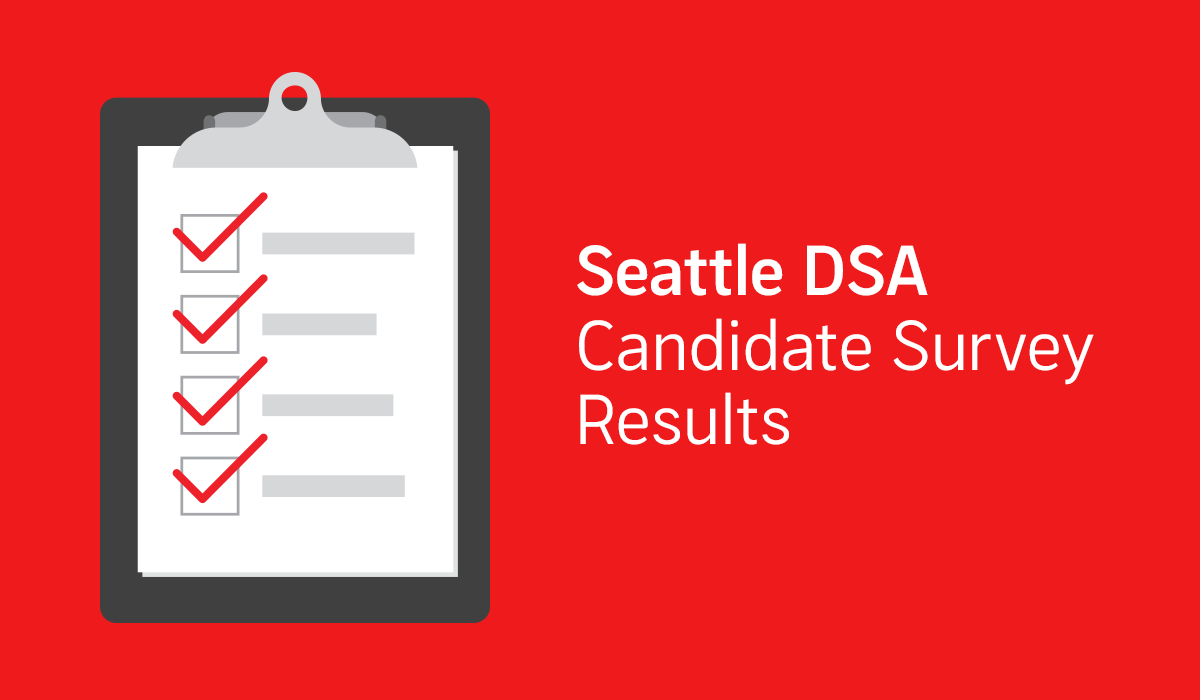
3 comments on “Candidate Survey Results: Questions 1 & 2; Paid Family Leave”
Comments are closed.